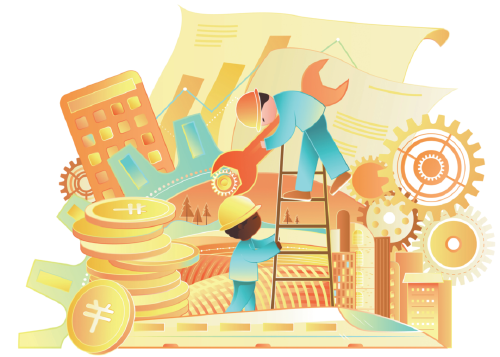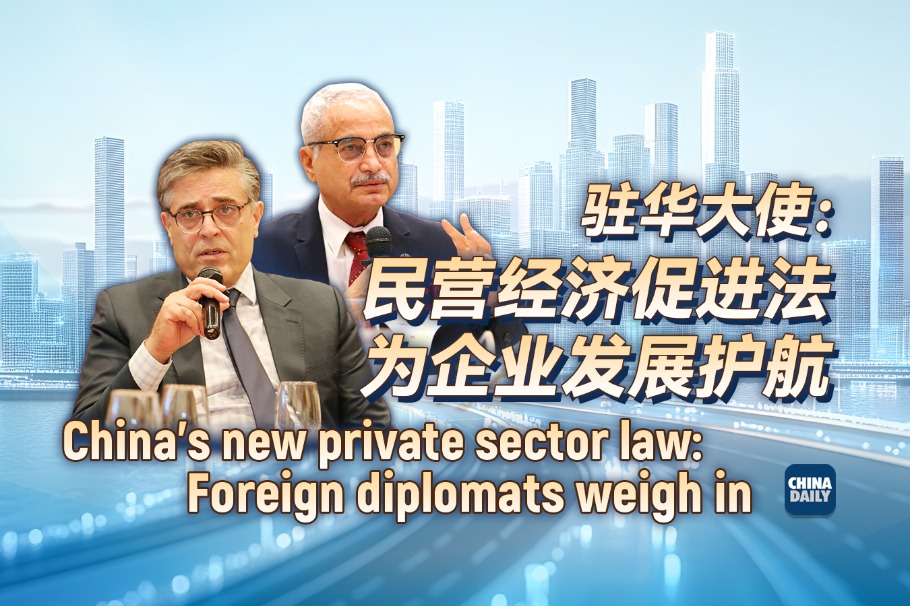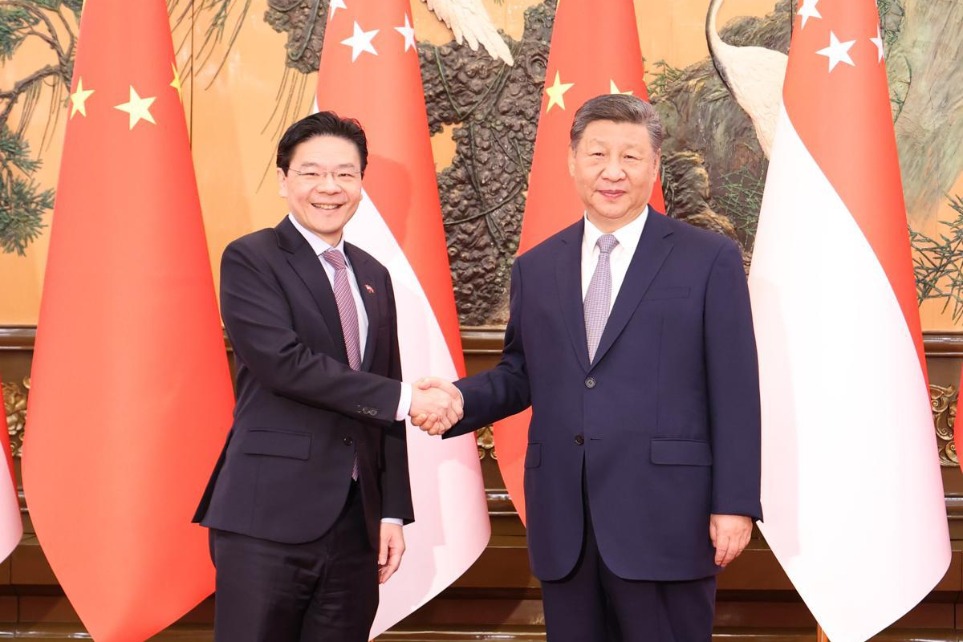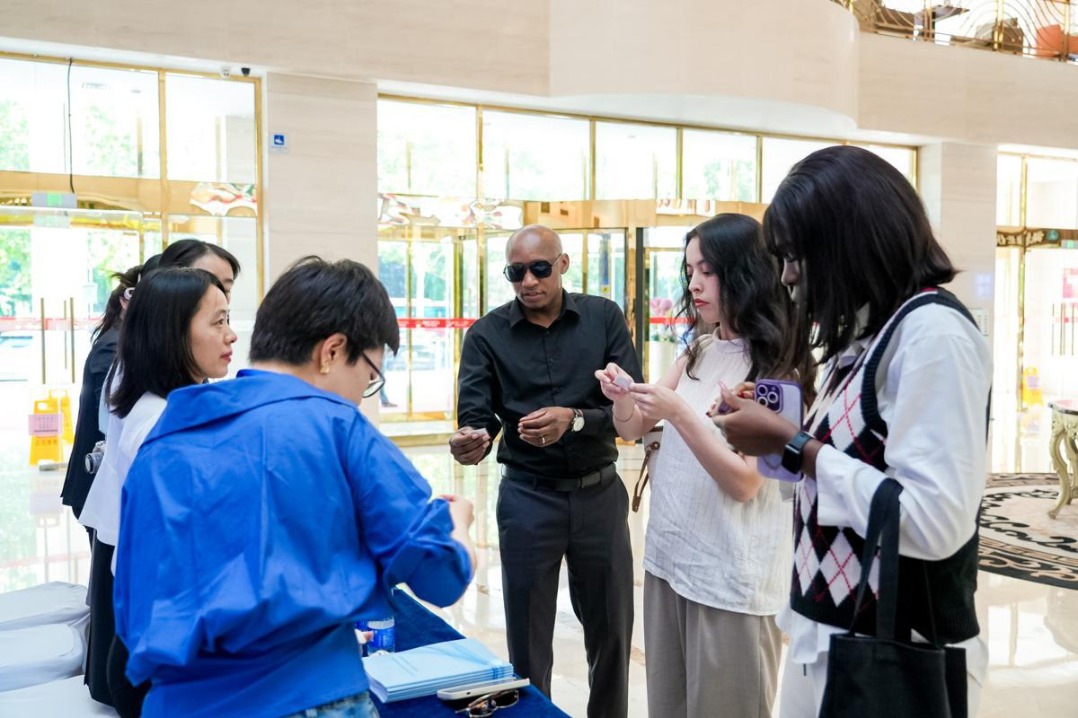External solution
As the global outlook remains grim, the need for Africa to intensify infrastructure cooperation with China under BRI and FOCAC is underlined

As the global outlook remains grim, the need for Africa to intensify infrastructure cooperation with China under BRI and FOCAC is underlined

Sub-Saharan Africa faces a gloomy year ahead, according to the recently released Global Economic Prospects report prepared by the World Bank. The region's economy is expected to grow by only 3.6 percent in 2023, slightly down from 3.8 percent in 2022. The World Bank expects the growth rate to improve slightly to 3.9 percent in 2024. These projections are similar to the African Development Bank's Macroeconomic Performance Outlook report which predicts a growth rate averaging almost 4 percent between 2023 and 2024. The World Bank report further estimates that the region's per capita income will rise by just 1.2 percent in 2023, which will not be enough to alleviate poverty.
This is against the backdrop of an overall dim global economic outlook. Global economic performance is expected to be sluggish in 2023, growing at a low rate of 1.7 percent in 2023 and 2.7 percent in 2024.The slow economic growth is attributed to several factors including the disruption of global supply chains following the Russia-Ukraine conflict, high food and energy prices accompanied by high inflation, high interest rates making capital more expensive, low investment appetite and rising geopolitical tensions between the world's major powers.
The eruption of the Russia-Ukraine conflict in 2022 disrupted critical supply chains, which saw the world run short of wheat, corn, fertilizers and natural gas of which Russia is a major supplier. The sudden scarcity of these key commodities triggered global food and energy inflation, thus condemning millions of people, especially in the developing world, to hunger. Moreover, geopolitical tensions between the world's major powers have become a stumbling block to global economic recovery. The imposition of economic sanctions on Russia by the Western countries also contributed to a subdued global economy and their impact will linger in 2023.
The economic slowdown will significantly derail Africa's efforts to realize the United Nations Sustainable Development Goals by its 2030 deadline or achieve the targets set out in the African Union's Agenda 2063 Initiative. Sub-Saharan Africa has been particularly vulnerable to global economic shocks such as pandemics and geopolitical tensions due to the export-oriented nature of the majority of its economies. Most countries in sub-Saharan Africa depend on the exports of one or two primary commodities such as oil, cocoa, timber, minerals, rubber and groundnuts among others. The fluctuating demand and prices of these primary commodities undermine the region's economic viability because of a drastically shrinking revenue base.
This has resulted in some African governments not being in a position to fund development projects to protect the welfare of their citizens. Moreover, the Russia-Ukraine conflict added to the continent's economic woes. A sizable number of African countries depend on Russia and Ukraine for their wheat, fertilizer and steel needs among other critical imports. For example, Ghana depends on Ukraine for 60 percent of its iron and steel needs, Cameroon sources 44 percent of its fertilizer from Russia while Kenya imported almost 30 percent of its wheat from these two countries. The disruption in supply has led to high food and fuel prices which have made hundreds of millions of Africans face food insecurity and many African countries are facing the risk of political instability. The region recorded an average inflation of 14.5 percent in 2022, which meant that most people's real incomes were seriously eroded. The protectionist policies pursued by the European Union and the United States in their attempt to undermine China's development are harming the global trade system, thus making Africa's inflation headache even worse.
Another factor adding to Africa's inflationary pressures is the lack of supply capacity in most African countries due to a negligible manufacturing base. African countries are forced to look beyond Africa for most of the manufactured products since they cannot be competitively sourced within the continent. Poor transport, legal and trade facilitation systems mean that consumers in Africa pay high prices.
To bring down inflation, African countries will have to introduce well-thought-out monetary and fiscal reforms in a way that will not undermine public welfare. Most African countries are facing debt-distress. Negotiations with creditors for debt relief will go a long way to creating much-needed fiscal space. It has been highlighted that one of Africa's biggest weaknesses is its economic dependency on the external world. Over 80 percent of Africa's trade occurs with countries outside the continent, with Africa exporting mostly raw materials while importing manufactured products. Hence, there is a need for Africa to build its supply capacity for manufactured goods and promote intra-African trade so as to reduce the continent's vulnerability to external shocks. Africa's external partners such as China are already playing a critical role in promoting intra-Africa trade through regional infrastructure initiatives that will improve connectivity between African countries, thus suppressing trade costs.
Hence, China and Africa's cooperation in infrastructure under the ambit of the Belt and Road Initiative and the Forum on China-Africa Cooperation should be intensified. It will also be in Africa's interest to promote a more equitable and just global trade system using the World Trade Organization's negotiation platforms.
Africa must partner with other progressive partners to promote a trading system that will advance and not undermine globalization. Other areas that need urgent attention include domestic resource mobilization, improving governance through transparency and accountability, investing in digital infrastructure and supporting the private sector.
The author is an associate professor of international relations and political science and the director of the Centre for Africa-China Studies at the University of Johannesburg. The author contributed this article to China Watch, a think tank powered by China Daily.
Contact the editor at editor@chinawatch.cn.






























